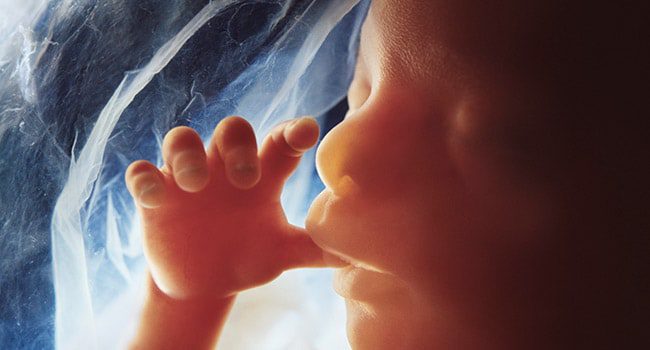
An Arizona law that would grant personhood to fetuses, embryos, and fertilized human eggs was challenged in court again, and on Monday a District judge blocked the law.
U.S. District Judge Douglas Rayes said in his ruling that the law appears to be vague. He said, “When the punitive and regulatory weight of the entire Arizona code is involved, Plaintiffs should not have to guess at whether their conduct is on the right or the wrong side of the law.”
“A law is unconstitutionally vague if its application is so unclear that people of ordinary intelligence cannot figure out in advance how to comply with it,” Rayes continued.
The challenge to the law came from opponents seeking to prevent abortion restrictions in the state. The motion was filed last month.
The Center for Reproductive Rights and the American Civil Liberties Union (ACLU) of Arizona are part of a group seeking to block the fetal personhood provision included in a 2021 law.
The provision would have granted fetuses, embryos, and fertilized eggs the same rights as persons who have already been born. The provision could have led to prosecutions against women who have abortions.
The provision states that “The laws of this State shall be interpreted and construed to acknowledge, on behalf of an unborn child at every stage of development, all rights, privileges and immunities available to other persons, citizens and residents of this state, subject only to the Constitution of the United States and decisional interpretations thereof by the United States Supreme Court.”
Opponents were concerned that women who choose abortions and providers could be at risk of charges such as assault or child endangerment if the rights of personhood rights are granted.
The emergency motion to block the personhood measure was filed following the decision in Dobbs v. Jackson Women’s Health Organization, to reverse the 1973 abortion ruling Roe v. Wade.
Another provision of the 2021 Arizona law makes abortion illegal if the patient’s reason for seeking an abortion is the condition or diagnosis of the unborn child. This would include Down Syndrome, cystic fibrosis, and other medical conditions referred to as “genetic abnormalities.”
The Arizona Medical Association, the National Council of Jewish Women Arizona, and the Arizona National Organization of Women are challenging the law. The ACLU’s Center for Reproductive Rights and the ACLU of Arizona represent the group.
Defendants in the case include Arizona Attorney General Mark Brnovich, every county attorney in Arizona, the Arizona Medical Board, the Arizona Department of Health Services and certain other officials.
In September 2021, Judge Rayes agreed to block the section of the law about genetic conditions but declined to grant an injunction against the personhood provision.
The provision “essentially requires providers to mislead their patients into believing that their constitutionally protected choice is unlawful” and would make it less likely that women will know they have the right to terminate a pregnancy because of a fetal genetic abnormality, wrote Rayes.
Cathi Herrod, president of the Center for Arizona Policy, said the ruling was only the courts’ first review of the law.
“We remain confident the law will be upheld and ruled enforceable in its entirety,” Herrod said in a statement.
Friday’s hearing will determine what is next for the life-saving provision.
“Today’s ruling was based on an interpretation of Arizona law that our office did not agree with, and we are carefully considering our next steps,” a spokesperson for Brnovich said.
The post Federal Judge Blocks Arizona Law That Would Grant Personhood To Unborn Babies appeared first on The Gateway Pundit.